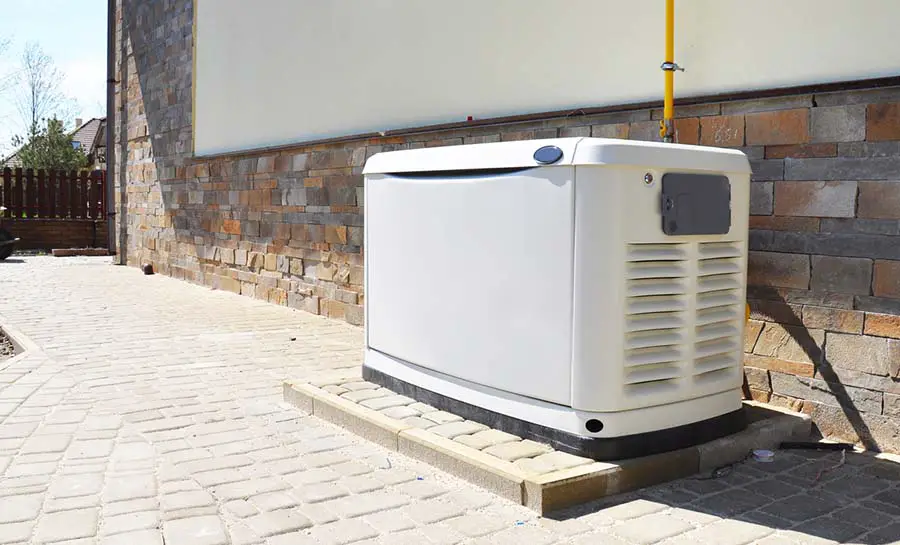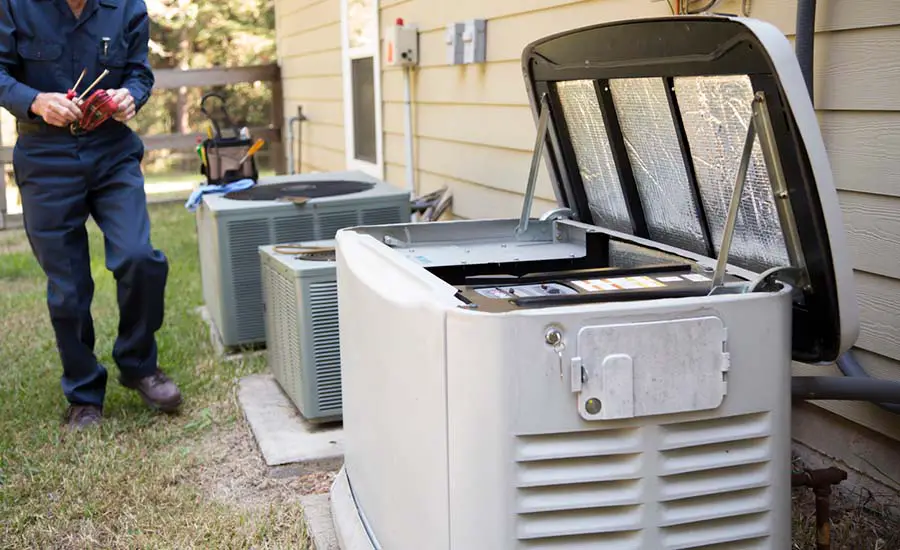
When buying a household generator, you will want to make sure that you get the appropriate value for your money. One of the leading performance indicators that people use to determine if a household generator is worth the money is whether or not it is sufficient to power the household and how long the generator will last. So, how long should a household generator last to determine if this expensive investment is worth it?
The life expectancy of generators can vary depending on their size (capacity) and how often they are used and maintained. The general wisdom points towards the figure of lasting anything between 20 and 40 years. However, if used very conservatively, a generator’s life can extend well beyond 40 years.
You purchase a generator for the long haul, and you do not want to replace it often. Knowing how long it lasts is important, but what things must you consider to determine how long your generator will last? In addition, is there anything you can do to extend the life of your generator? All of this we explore in the article below.
Whole House Generator Life Expectancy
Backup generators are expensive, and you must establish whether or not the generator will last long enough to provide you with the appropriate rate of return on the asset. Stationary household generators can cost up to $15,000, and you are going to want to make sure this sum of money lasts you your entire lifetime (figuratively, if not literally).
In addition to the purchase costs, you also have some installation costs and costs to maintain it. So, if the costs associated with having a generator made it clear that it is crucial to know how long the generator will (or has to) last you, let us move on to how long generators last.
How long your backup generator will last depends, to a large extent, on how large the generator is. When we say large, we do not refer to the generator’s physical dimensions but the generator’s capacity.
Calculating an Estimated Life Expectancy for Your Household Generator
That said, you can expect that your average generator will last anything between 1,500 hours up to 3,000 hours. This means active operating hours and not hours where you turn the generator off.
Let us create a scenario to put this value into perspective. If you live in the United States and experience between two to three power outages a year, which lasts 24 hours each, that is between (24 x 2) = 48 hours and (24 x 3) = 72 hours per year that the power is out.
Let us involve a little more complexity in the calculation. On the one hand of the spectrum, you may only decide to use the generator for 8 hours per power outage to power your most essential appliances. On the other hand, you may choose to use your generator for the entire time that the power is out during the day.
That gives us a lower limit of (2 power outages x 8 hours per power outage) 16 hours and an upper limit of (3 days x 24 hours per power outage) 72 hours per year that you use your generator. Anything can fall in between this range, whether you use your generator for 8 hours per power outage for three power outages or 24 hours per power outage for two power outages.
Accordingly, if you use your generator for 16 hours per year, your generator can last you (1,500 / 72) = 20 years and ten months if you have a generator that falls on the lower side of life expectancy. On the other hand, your generator can last you (3,000 / 16) = 187 years and six months.
It is important to note that those are the vast and extreme opposites.
- In order to calculate the lower limit, we assumed that you are using your generator as much as possible, and the life expectancy of the generator is on the lower side. This means that you are exhausting a lower quality generator as much as reasonably possible.
- In order to calculate the upper limit, we assumed the exact opposite. We assumed that you are using your generator very conservatively and that you have a very high quality generator that has a very long life expectancy. Meaning you are using your expensive generator as conservatively as possible.
So, there is our very theoretical range: between 20 and 188 years.
Other Factors Regarding Your Generator’s Life Expectancy

Now that we have discussed the factors that can help you determine a theoretical upper and lower limit life expectancy for your generator let us consider a few other influential factors.
Whole House Generator Maintenance
For starters, it is recommended that you maintain your generator regularly. It is best to do a weekly routine to maintain your generator where you run your generator for a couple of minutes – this can be between 10-20 minutes.
If you take the average of 15 minutes per week and multiply it by 52, you get 780 minutes per year running for maintenance purposes only. Seven hundred and eighty minutes translates into 13 hours per year that your generator has to run, just for your generator to continue running in the future. Accordingly, we can deduct 13 hours per year from the total lifespan of your generator.
If we assume from the start that your generator will, at the very least, last you 20 years, that is (20 x 13) = 260 hours off of the 1,500 hours guaranteed on a low-life expectancy generator. This either means you have to use your generator less in the given 20 years or that your generator will not last 20 years if you use a low-quality generator.
While we are on the topic of maintenance, it should go without saying that a generator uses an engine like any other mechanical device that uses an engine. If you think about a motor vehicle, we know that the more you maintain its engine, the longer that vehicle will last. There is a reason that you are required to service your motor vehicle from time to time.
A generator does not operate any differently: the more you maintain (service) your engine, in addition to giving it its weekly exercise, the longer the generator is bound to last.
The Size of Your Whole House Generator
The capacity of your generator also determines how long the generator will be able to operate. Usually, larger generators with larger engines tend not to have the longest life expectancies because larger engines tend to wear faster than smaller ones.
The Brand of Your Whole House Generator
It should go without saying, but as with any other commercial product – if you buy from a well-known and reputable supplier, your generator is bound to last longer than a generator of the same specifications but a less trustworthy supplier.
Now we know what the upper and lower limits of the life expectancy of your generator are, and we are aware of certain factors that will probably affect the values that we calculated. Despite the theoretically calculated values given above, it is important to mention the reported averages for generators’ life expectancy.
The general wisdom is that a generator can last between 20 – 40 years. Other sources accurately confirm this wisdom by stating that, on average, generators are built to last around 30 years – a fair compromise between 20 and 40 years. Accordingly, we can say that the lower limit we calculated is correct, but 188 years is, perhaps, very (if not too) generous.
Extending The Life Expectancy of Your Whole House Generator
We have already mentioned some of the things that will allow you to extend the life expectancy of your generator, but it is important to emphasize them again here.
- Make sure to operate your generator on a weekly basis and give it the ‘exercise’ it needs. This prevents moisture buildup that could affect your generator negatively.
- Maintain your generator by giving it a routine service at an appropriate interval.
- Purchase a generator with pressurized lubrication since it helps the oil in the generator to start circulating immediately if the engine is turned on.
- Make sure to not put too much strain on your generator and run it at the appropriate levels for which it was designed for.
Conclusion
In conclusion, a generator is built to last you a long time. At the very least, it should last you a couple of decades; at the very most, it can last you a (literal) lifetime. This can be anything between 20-40 years.
However, suppose you treat your generator exceptionally well and operate it very seldom. In that case, you may be one of the very lucky few that can pass your generator from generation to generation!
